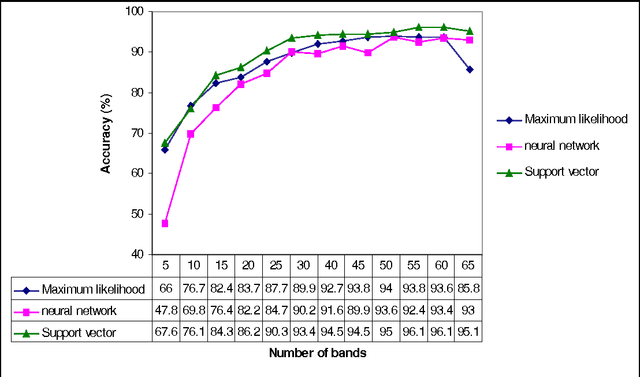Support Vector classifiers for Land Cover Classification
Paper and Code
Feb 15, 2008


Support vector machines represent a promising development in machine learning research that is not widely used within the remote sensing community. This paper reports the results of Multispectral(Landsat-7 ETM+) and Hyperspectral DAIS)data in which multi-class SVMs are compared with maximum likelihood and artificial neural network methods in terms of classification accuracy. Our results show that the SVM achieves a higher level of classification accuracy than either the maximum likelihood or the neural classifier, and that the support vector machine can be used with small training datasets and high-dimensional data.
* 11 pages, 1 figure, Published in MapIndia Conference 2003
 Add to Chrome
Add to Chrome Add to Firefox
Add to Firefox Add to Edge
Add to Edge